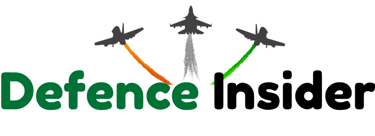Russia asserts full control over Ukraine’s Luhansk region amid ongoing conflict.
GLOBAL DEFENCE
Ukraine War Update: Russia Claims Full Control Over Luhansk, Expands Offensive
In a major development in the ongoing Russia-Ukraine conflict, Russian forces have reportedly taken full control of Ukraine’s Luhansk region — one of the four territories Moscow illegally declared annexed in September 2022, despite not having total control over any of them at the time. Leonid Pasechnik, the Russia-appointed head of Luhansk, made the announcement on Monday. If verified, this would mark Luhansk as the first region in Ukraine to be entirely occupied by Russian troops since the war began over three years ago.
Speaking on Russia’s state-run Channel One, Pasechnik revealed that he had received a report “just two days ago” confirming that “100%” of the territory is now under Russian control. Ukrainian authorities have yet to respond to the claim, leaving its accuracy officially unverified for now.
New Fronts: Russia Enters Dnipropetrovsk Region
Simultaneously, reports from Russian state media and pro-Kremlin war bloggers suggest that Russian troops have captured a village in Ukraine’s Dnipropetrovsk region for the first time since the invasion began. Dnipropetrovsk lies west of the contested Donetsk region and is not among the areas Russia has formally annexed or laid official claim to. There has been no confirmation yet from the Ukrainian government or Russia’s Ministry of Defence regarding the veracity of this development.
North Korea and Russia Deepen Ties Amid War Support
In a symbolic gesture of solidarity, North Korean leader Kim Jong-un was seen paying respects to what are believed to be fallen North Korean fighters who died in support of Russia’s war in Ukraine. Photographs broadcast by North Korean state media on Monday show Kim draping national flags over several coffins, pausing in solemn reflection with both hands resting on them. The ceremony took place as Pyongyang and Moscow celebrated a historic military cooperation pact with a cultural event featuring Russian and North Korean artists.
EU and Ukraine Finalize Controversial Trade Agreement
Amid rising discontent among European farmers, the European Union announced a revised long-term trade agreement with Ukraine focused on agricultural imports. The deal, which still awaits final ratification, seeks to balance economic support for Ukraine with protection for EU farmers, many of whom have protested the influx of tariff-free Ukrainian goods.
Under the revised arrangement, Brussels will maintain restrictions on select agricultural imports—including wheat, corn, sugar, eggs, and poultry—by capping tariff-free access to these goods. In return, Ukraine has agreed to reduce its own quotas on pork, poultry, and sugar imports from the EU and has committed to aligning its food safety and production standards with those of the EU by 2028.
IMF Boosts Ukraine with $500 Million Disbursement
On the economic front, the International Monetary Fund (IMF) has completed its eighth review of Ukraine’s $15.5 billion Extended Fund Facility (EFF), unlocking an additional $500 million in aid. This brings total IMF disbursements to the embattled country to $10.6 billion. However, the IMF warned of significant and ongoing risks to Ukraine’s economic outlook, calling the situation “exceptionally high-risk” due to persistent conflict and structural challenges.
Putin’s Motives and Western Diplomacy: A Standoff Continues
German Foreign Minister Johann Wadephul, during his visit to Kyiv, sharply criticized Russian President Vladimir Putin, accusing him of attempting to not only conquer all of Ukraine but also instill fear throughout Europe. Wadephul dismissed Putin’s stated willingness to negotiate as “mere theatre,” echoing widespread sentiment among Kyiv and its allies that Moscow is obstructing meaningful diplomatic resolution.
In the U.S., Keith Kellogg, a top advisor to former President Donald Trump and currently a senior envoy on Ukraine and Russia, issued a stern rebuke of Moscow’s tactics. Kellogg emphasized that Russia cannot continue to prolong the war while attacking civilian areas. He called for an immediate ceasefire and urged trilateral talks to bring the war to a peaceful end.


Global Threats to Press Freedom Escalate
As political leaders such as Donald Trump and Hungary’s Viktor Orbán continue to challenge democratic norms, press freedom is increasingly under threat—not only in the U.S. but globally. Trump’s aggressive actions toward the media—ranging from lawsuits and selective press access to public denunciations—have raised concerns about the erosion of journalistic independence.
Yet, these actions represent just one part of a broader and more dangerous trend. Across the world, economic pressures, authoritarian regimes, and coordinated disinformation campaigns are stifling the free press. Independent journalism—free from corporate influence or political pressure—is a cornerstone of any healthy democracy, but that foundation is being relentlessly attacked.
The Guardian’s Commitment to Independent Journalism
Amid this backdrop, The Guardian stands firm in its mission to produce fearless, independent journalism. Unlike media outlets controlled by wealthy individuals or influenced by shareholders, The Guardian is owned by a trust committed solely to supporting its editorial freedom. This unique structure allows it to hold those in power accountable without compromise.
In an era where global news changes by the hour and misinformation spreads rapidly, the need for rigorous, well-funded, and ethical journalism has never been more urgent. The Guardian pledges to stay focused on the stories that matter most—those that affect lives, expose corruption, and offer hope.
As writer and Guardian contributor Rebecca Solnit aptly said, “Authentic hope requires clarity … and imagination.” With the help of readers worldwide, including in India, The Guardian aims to deliver both—fueling hope and understanding through truth-telling, no matter how uncomfortable it may be.
